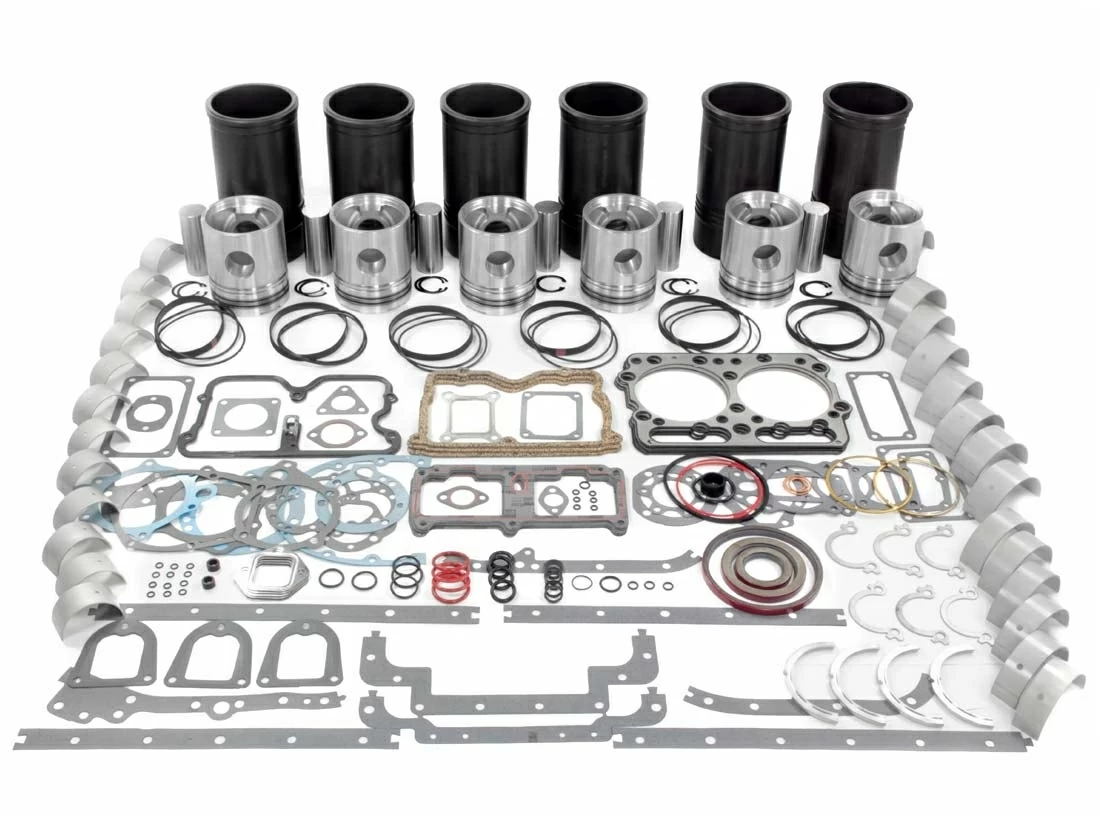A diesel engine overhaul is an essential procedure to restore engine performance and extend its lifespan. With time going by, wear and tear may reduce the engine’s efficiency and cause potential damage. Recognizing why and when an overhaul is necessary can prevent costly repairs and ensure reliable operation.

Signs That a Diesel Engine Might Need an Overhaul
1. Reduced Performance
A drop in performance is one of the most common signs that a diesel engine needs an overhaul.
- Lacking Power: Struggling to accelerate or a reduced hauling capacity indicates internal wear or fuel delivery issues. For example, a vehicle that was originally able to easily climb steep slopes now feels obviously difficult to climb. Alternatively, the engine speed increases but the vehicle speed increases slowly.
- Hard Starting: Hard starting of the engine may stem from compression loss or fuel system problems. For example, after the engine is stopped, it cannot start smoothly, or it is difficult to start again when just turned off.
- Increased Fuel Consumption: A sudden rise in fuel usage suggests inefficiency, often caused by worn parts and components or improper combustion. In that case, fuel cannot be fully burned and be wasted.
2. Abnormal Emission
Unusual emissions are another key indicator of engine issues.
- Blue Smoke: Blue exhaust smoke points to oil burning within the combustion chamber, often due to worn piston rings or valve seals. If the piston rings or valve seals wear out or are damaged, oil can leak into the combustion chamber and get burned along with the fuel.
- Strong Exhaust Smell: Normal diesel engine exhaust should have no obvious odor. An unusually strong or unpleasant exhaust odor could mean incomplete combustion or a failing fuel injection system.
3. Oil Problems
Oil-related issues are red flags that should not be ignored.
- Abnormal Oil Consumption: Excessive oil usage suggests leaks or worn-out seals. The oil may have entered the combustion chamber through some channels and been consumed abnormally.
- Oil Sludge Accumulation: Oil sludge is usually due to the deterioration of engine oil, insufficient combustion inside the engine, and the mixture of impurities produced by component wear. Its appearance often means that there is a certain degree of pollution and wear inside the engine. In addition, it can clog components, reducing lubrication and causing damage.
4. Unusual Noises
Diesel engines are inherently louder than gasoline engines, but certain sounds indicate trouble.
- Knocking or Tapping Sound: These noises may signal problems with the combustion process or worn internal components. One common cause of the knocking sound is incorrect fuel injection timing. If the fuel is injected too early or too late into the combustion chamber, it can lead to abnormal combustion, resulting in a knocking noise. Besides, worn or damaged bearings can produce a knocking sound. Worn valve lifters, rocker arms, or pushrods can also cause a tapping sound.
- Abnormal Exhaust Emission Sound: Abnormal exhaust emission sounds include knocking sounds, collision sounds, gunfire sounds, etc. These unusual sounds may be caused by carbon deposits, blockage inside the exhaust system, or abnormal combustion inside the engine.
5. Abnormal Appearance and Temperature
Changes in appearance or operating temperature often signal problems.
- Water or Oil Leakage: Visible leaks are a direct sign of seals or gasket failures. This may result in the aging and damage of the engine’s seals, or cracks or looseness of parts. It will not only cause a waste of engine oil and coolant but may also further cause other failures.
- Overheating: Persistent overheating indicates issues with the cooling system, lubrication, combustion, or excessive internal wear. Excessive temperature will cause damage to engine parts and accelerate their aging and wear.
The Impact of Diesel Engine Problems
-
Performance Impact
Diesel engine problems directly reduce performance, leading to lower power output, poor fuel economy, and inefficient operation. Over time, unresolved issues can escalate into catastrophic failures, requiring more extensive repairs or a complete replacement.
-
Environmental Impact
Engines with unresolved issues release more harmful emissions, contributing to air pollution. Blue smoke, unburned fuel, and increased exhaust emissions are not only damaging to the environment but can also lead to regulatory penalties in areas with strict emission standards.
How Often Should a Diesel Engine Be Overhauled?
-
Usage and Operating Conditions
Engines used in harsh environments or under heavy loads are more prone to wear and tear. Frequent usage under such conditions may require more frequent overhauls.
-
Maintenance and Service History
A well-maintained engine typically lasts longer. Regular oil changes, timely filter replacements, and adherence to service intervals significantly extend the time between overhauls.
-
Manufacturer’s Recommendations
Manufacturers provide guidelines on the expected lifespan of their engines before an overhaul is necessary. Following these recommendations ensures optimal performance and reliability.
Conclusion
A diesel engine overhaul is crucial to restoring performance, improving efficiency, and extending the life of the engine. By recognizing signs that a diesel engine might need an overhaul and addressing issues promptly, you can minimize downtime and maintain environmental compliance. Regular maintenance plays a key role in determining the overhaul frequency.












